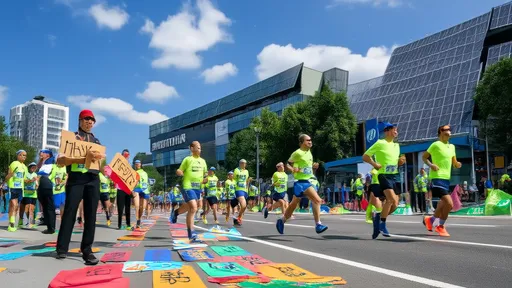The advent of gene editing technologies has ushered in a new era of possibilities across various fields, from medicine to agriculture. One of the most contentious debates emerging from this scientific revolution revolves around its application in sports. The idea of enhancing athletic performance through genetic modifications is no longer confined to the realm of science fiction. As CRISPR and other gene-editing tools become more accessible, the line between natural talent and engineered superiority is blurring, raising ethical, legal, and social questions that challenge the very foundation of competitive sports.
The Science Behind Gene Editing in Sports
Gene editing, particularly CRISPR-Cas9, allows scientists to make precise alterations to DNA. This technology can potentially target genes associated with muscle growth, oxygen efficiency, and recovery rates—traits that are highly valuable in athletics. For instance, the ACTN3 gene, often referred to as the "speed gene," has been linked to explosive muscle performance. Editing such genes could theoretically create athletes with unparalleled physical capabilities. While this promises a future of superhuman athletic feats, it also opens Pandora's box of ethical dilemmas.
The Ethical Quagmire
The prospect of genetically enhanced athletes has sparked intense debate. On one hand, proponents argue that gene editing could level the playing field by compensating for genetic disadvantages. If an athlete naturally lacks the ACTN3 gene, why shouldn’t they have the opportunity to compete on equal footing? However, critics counter that this undermines the spirit of sports, where natural talent, hard work, and perseverance are supposed to reign supreme. The fear is that sports could devolve into a competition of who has access to the best genetic enhancements rather than who is the most skilled or dedicated.
The Legal and Regulatory Void
Currently, there is no comprehensive framework governing the use of gene editing in sports. Organizations like the World Anti-Doping Agency (WADA) have banned gene doping, but enforcement remains a challenge. Detecting genetic modifications is far more complex than identifying traditional performance-enhancing drugs. This regulatory gray area creates a breeding ground for unethical practices. Without clear guidelines, the risk of a clandestine arms race in genetic enhancement looms large, threatening the integrity of sports worldwide.
The Social Implications
Beyond ethics and legality, the societal impact of gene-edited athletes cannot be ignored. The divide between those who can afford genetic enhancements and those who cannot could exacerbate existing inequalities. Imagine a future where only the wealthy have access to the latest gene-editing technologies, creating a new class of super-athletes while leaving others behind. This scenario raises profound questions about fairness and accessibility, not just in sports but in society at large.
The Future of Sports in the Gene-Editing Era
As gene editing technology continues to advance, the sports world must grapple with these challenges head-on. Some suggest embracing the technology under strict regulations, while others advocate for a complete ban. The middle ground might involve creating separate leagues for genetically enhanced athletes, much like the Paralympics for athletes with disabilities. Whatever the solution, one thing is clear: the conversation around gene editing in sports is far from over. It forces us to confront fundamental questions about what it means to compete, to excel, and to be human.
The intersection of genetics and athletics is a frontier fraught with both promise and peril. As science pushes the boundaries of human potential, society must decide where to draw the line. The decisions made today will shape the future of sports for generations to come.

By /Jul 10, 2025

By /Jul 10, 2025

By /Jul 10, 2025

By /Jul 10, 2025

By /Jul 10, 2025

By /Jul 10, 2025

By /Jul 10, 2025

By /Jul 10, 2025

By /Jul 10, 2025

By /Jul 10, 2025

By /Jul 10, 2025

By /Jul 10, 2025

By /Jul 10, 2025

By /Jul 10, 2025

By /Jul 10, 2025

By /Jul 10, 2025

By /Jul 10, 2025

By /Jul 10, 2025